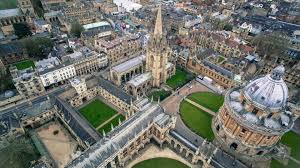Harvard University, located in Cambridge, Massachusetts, is one of the oldest, most prestigious, and well-recognized institutions of higher learning in the world. Established in 1636, it has played a pivotal role in shaping education, research, and society for nearly four centuries. With a rich history, world-class faculty, and an unwavering commitment to excellence, Harvard remains a symbol of academic rigor, intellectual exploration, and leadership.
History and Founding
Harvard University was founded in 1636 by the Massachusetts Bay Colony and named after its first benefactor, John Harvard, a young clergyman who bequeathed his library and half his estate to the institution. Initially intended to train clergy, Harvard’s early curriculum focused on theology and the liberal arts. Over time, however, the university expanded its offerings to encompass a wide range of disciplines, becoming a center for intellectual and academic innovation.
Harvard was instrumental in shaping higher education in the United States, and its commitment to providing a comprehensive and rigorous curriculum laid the foundation for many of the country’s best-known universities. As one of the colonial colleges, it played a significant role in early American intellectual and cultural life. Harvard has produced many of the United States’ Founding Fathers, including John Adams and Thomas Jefferson, who laid the groundwork for the nation’s political and philosophical landscape.
Campus and Facilities
Harvard’s campus is spread across more than 5,000 acres in Cambridge, Massachusetts, and includes several historic and modern buildings. The university is made up of various schools and divisions, including Harvard College (its undergraduate program), the Harvard Graduate School of Arts and Sciences, the Harvard Law School, the Harvard Medical School, and the Harvard Business School, among others.
The university’s architecture is a blend of traditional colonial-style buildings and more contemporary, innovative designs. Harvard Yard, the university’s historic center, is home to many of the original buildings and serves as the focal point for student life. A notable example of Harvard’s commitment to academic excellence is its Widener Library, which houses over 10 million books and serves as one of the largest academic libraries in the world.
Harvard’s campus is also rich with green spaces, including the Arnold Arboretum, a 281-acre park and botanical research center. The university is committed to sustainability and maintaining a beautiful, open campus for students, faculty, and visitors to enjoy.
Academic Excellence
Harvard University is renowned for its academic rigor and high standards, offering a wide range of programs across multiple disciplines. It is consistently ranked among the top universities globally, regularly competing for the number one spot in various rankings. Harvard offers over 3,700 courses, with more than 50 undergraduate fields of study and hundreds of graduate and professional programs.
The university’s faculty members are among the most accomplished scholars in their respective fields, many of whom are leaders in their areas of expertise. Harvard has produced numerous Nobel laureates, Fields Medalists, Pulitzer Prize winners, and Turing Award recipients. The university also boasts a large network of highly successful alumni, including U.S. presidents, foreign heads of state, business tycoons, and thought leaders who have shaped the global landscape in countless ways.
Harvard’s commitment to research is unparalleled, with a vast number of research centers and institutes dedicated to advancing knowledge in fields such as economics, medicine, law, and the sciences. Harvard Medical School, for instance, is one of the top medical schools in the world and is at the forefront of biomedical research, while Harvard Law School is known for its leadership in legal education and scholarship.
Innovation and Entrepreneurship
Harvard University has a long-standing tradition of fostering innovation and entrepreneurship, and its research has led to groundbreaking developments in a variety of fields. The university is a leader in advancing technologies, scientific discoveries, and business ventures that have transformed industries and improved society.
The university’s emphasis on interdisciplinary collaboration has led to the creation of transformative ideas, especially in the fields of biotechnology, artificial intelligence, and environmental sustainability. Harvard’s alumni network is a testament to the university’s entrepreneurial spirit, with many graduates founding some of the world’s most successful companies, including Microsoft, Facebook, and Google.
In addition to its focus on research and innovation, Harvard provides robust support for students interested in entrepreneurship through initiatives like the Harvard Innovation Labs. This initiative helps students and alumni develop their business ideas into real-world startups, providing access to resources, mentoring, and funding.
Diversity and Campus Life
Harvard is known for its commitment to diversity and inclusivity, striving to create a community where students from all backgrounds and perspectives feel welcome. The university’s student body is composed of individuals from all corners of the world, and its commitment to diversity is reflected in the numerous student organizations, cultural centers, and events that foster a rich and vibrant campus culture.
Campus life at Harvard is marked by a range of extracurricular activities, from student government to performing arts, sports, and community service. Harvard’s athletic teams, known as the Harvard Crimson, compete in the Ivy League and have a long history of success. The university also boasts a thriving arts scene, with numerous music, theater, and dance groups that regularly perform on campus and beyond.
Additionally, Harvard provides a robust system of support services to ensure that students succeed both academically and personally. This includes mental health resources, career counseling, academic advising, and mentorship programs designed to help students navigate their time at the university and prepare for life after graduation.
Global Influence and Impact
Harvard University’s influence extends well beyond the campus in Cambridge. With an expansive global alumni network and partnerships with leading institutions around the world, Harvard has a profound impact on society, policy, and the global economy. Harvard’s research initiatives address some of the world’s most pressing issues, from climate change to healthcare, social justice, and poverty alleviation.
The university’s commitment to public service is also reflected in programs like the Harvard Kennedy School, which trains future leaders in governance and public policy, and the Institute of Politics, which works to engage young people in public life.
Conclusion
Harvard University’s legacy of excellence, intellectual leadership, and innovation continues to shape the world in profound ways. From its historical roots as a center of colonial education to its current status as a leading global institution, Harvard remains committed to pushing the boundaries of knowledge, fostering the next generation of leaders, and making a positive impact on society. With its emphasis on academic rigor, research, entrepreneurship, and global engagement, Harvard University will undoubtedly continue to lead and inspire for centuries to come.



